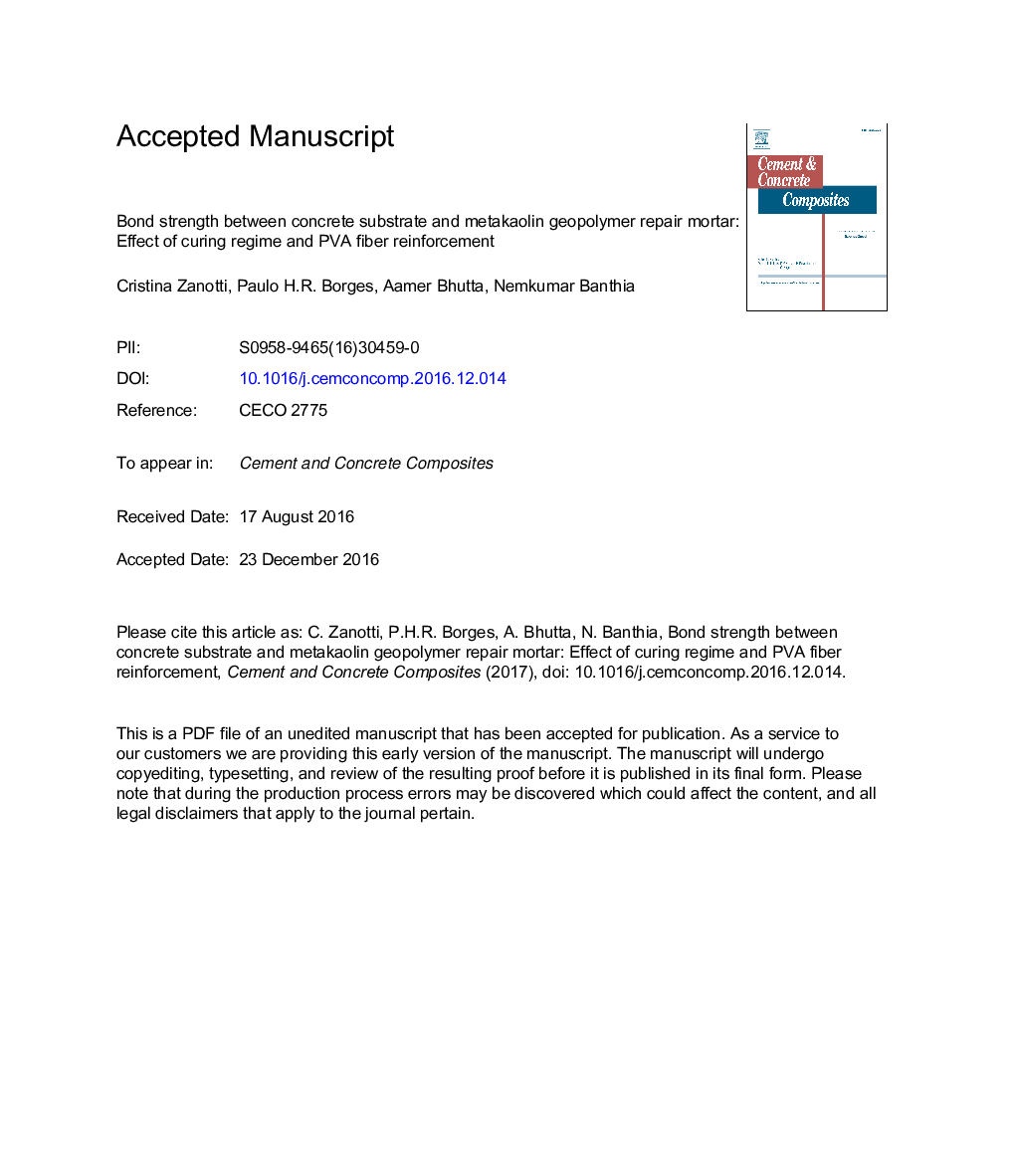| Article ID | Journal | Published Year | Pages | File Type |
|---|---|---|---|---|
| 5436880 | Cement and Concrete Composites | 2017 | 33 Pages |
Abstract
The suitability of repairing Portland cement concrete with geopolymer mortars is explored as a viable way to replace Portland cement in concrete repairs and reduce their carbon footprint. Bond tests are performed through non-standard slant shear tests with variable bond plane inclination to assess concrete-geopolymer shear bond strength under different combinations of normal and shear stresses at the concrete-geopolymer interface. Interfacial cohesion and friction coefficients, two inherent mechanical properties of the substrate-repair interface, are extrapolated from experimental data and compared among different types of geopolymer repairs. The adoption of different curing temperatures for the geopolymer repair mortar (20°C and 45°C) and its reinforcement with various contents of Polyvinyl Alcohol fibers (volume fractions Vf = 0%, 0.5%, and 1%) are investigated to optimize the substrate-repair bond. Mechanical tests are supported by statistical analysis and microscope observation.
Related Topics
Physical Sciences and Engineering
Engineering
Industrial and Manufacturing Engineering
Authors
Cristina PhD, Paulo H.R. Borges, Aamer Bhutta, Nemkumar Banthia,
